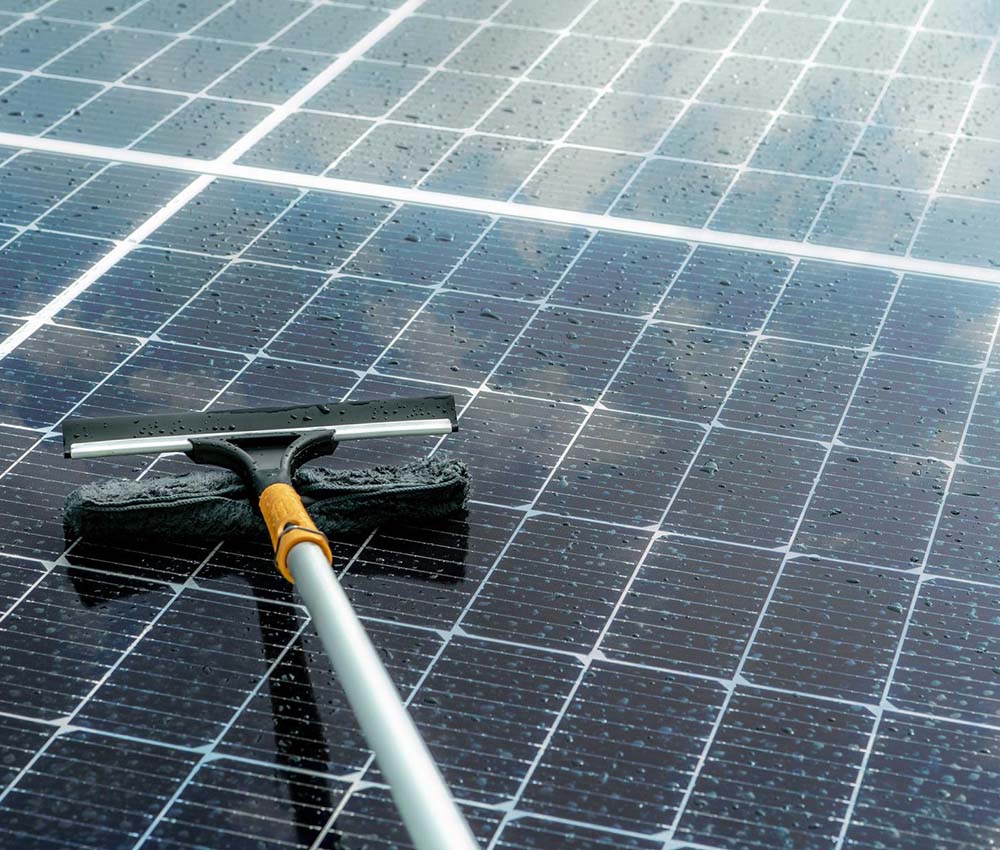Solar Cleaning
Cleaning solar panels is a crucial maintenance activity to ensure the optimal performance and efficiency of a solar energy system. Over time, dirt, dust, bird droppings, pollen, and other debris can accumulate on the panels, reducing their ability to absorb sunlight. Here's a comprehensive guide to solar cleaning:
Why Solar Panel Cleaning is Important
- Efficiency Maintenance
- Dirt and debris can block sunlight, reducing panel efficiency by up to 20-30% in extreme cases.
- Prolonged Lifespan
- Regular cleaning minimizes wear and tear caused by abrasive particles on the panel surface.
- Maximizing ROI
- Ensures you get the most energy output and financial return from your investment.
Factors That Affect Cleaning Needs
- Location
- Dusty areas or regions with frequent bird activity require more frequent cleaning.
- Weather Conditions
- Rain can wash off some debris but may leave behind mineral deposits or streaks.
- Tilt Angle of Panels
- Flat panels are more prone to debris accumulation compared to tilted ones.
- Environmental Factors
- Proximity to construction sites, highways, or industrial areas increases the risk of dirt build-up.
Cleaning Methods
- Manual Cleaning
- Use soft brushes, sponges, or microfiber cloths to remove dirt gently.
- Non-abrasive soap or specialized solar panel cleaning solutions can help with stubborn grime.
- Rinse with distilled or deionized water to prevent mineral streaks.
- Automated Cleaning Systems
- Robotic cleaners or waterless cleaning systems for large installations.
- Reduces manual labor but requires an upfront investment.
- Pressure Washing
- Use low-pressure settings to avoid damaging the panels.
- Not recommended for frequent cleaning.
- Professional Services
- Experts use specialized equipment and methods to ensure thorough cleaning.
- Ideal for large or hard-to-reach installations.
Best Practices
- Safety First
- Turn off the system before cleaning.
- Avoid cleaning during peak sunlight hours to prevent panel damage from thermal shock.
- Use safety gear if working at heights or on sloped roofs.
- Check Manufacturer Guidelines
- Follow recommendations for cleaning materials and techniques to avoid voiding warranties.
- Regular Maintenance Schedule
- Clean panels 2-4 times a year or as needed, depending on environmental conditions.
Benefits of Regular Cleaning
- Increases annual energy production.
- Reduces maintenance costs in the long run.
- Ensures consistent energy output, especially in commercial or utility-scale setups.
